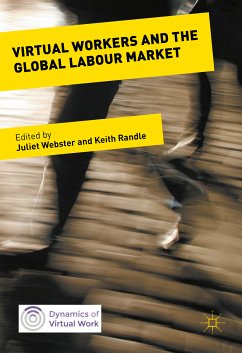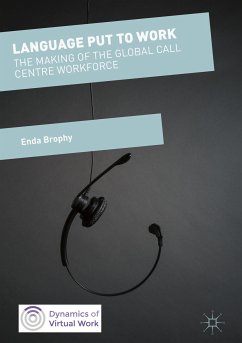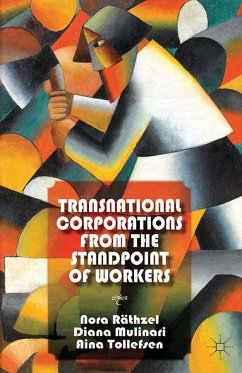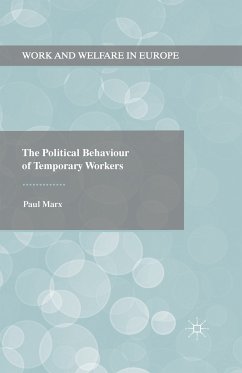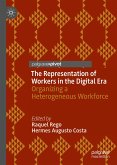The emerging world of virtual work is not tied to physical workplaces or particular locations, but is dispersed and footloose. It is frequently precarious, and blurs the boundaries between work and non-work, production and consumption.
Contributors to this wide-ranging volume of case studies identify the growing and diverse army of virtual workers. Building from an overarching introduction which discusses the salient features of virtual work, this collection considers the challenges in analysing the class position of virtual workers.
Virtual Workers and the Global Labour Market features international examples of emerging occupations and working conditions in new media, gaming, journalism, advertising and branding, software development and offshore services. Cross-disciplinary insights from across the social sciences inform contributions on labour market entry, employment relations, precariousness, the dynamics of virtual teams, and cyberbullying, in order to illustrate the diversity of virtual work, its circumstances and its labour force.
Contributors to this wide-ranging volume of case studies identify the growing and diverse army of virtual workers. Building from an overarching introduction which discusses the salient features of virtual work, this collection considers the challenges in analysing the class position of virtual workers.
Virtual Workers and the Global Labour Market features international examples of emerging occupations and working conditions in new media, gaming, journalism, advertising and branding, software development and offshore services. Cross-disciplinary insights from across the social sciences inform contributions on labour market entry, employment relations, precariousness, the dynamics of virtual teams, and cyberbullying, in order to illustrate the diversity of virtual work, its circumstances and its labour force.
Dieser Download kann aus rechtlichen Gründen nur mit Rechnungsadresse in A, B, BG, CY, CZ, D, DK, EW, E, FIN, F, GR, HR, H, IRL, I, LT, L, LR, M, NL, PL, P, R, S, SLO, SK ausgeliefert werden.

